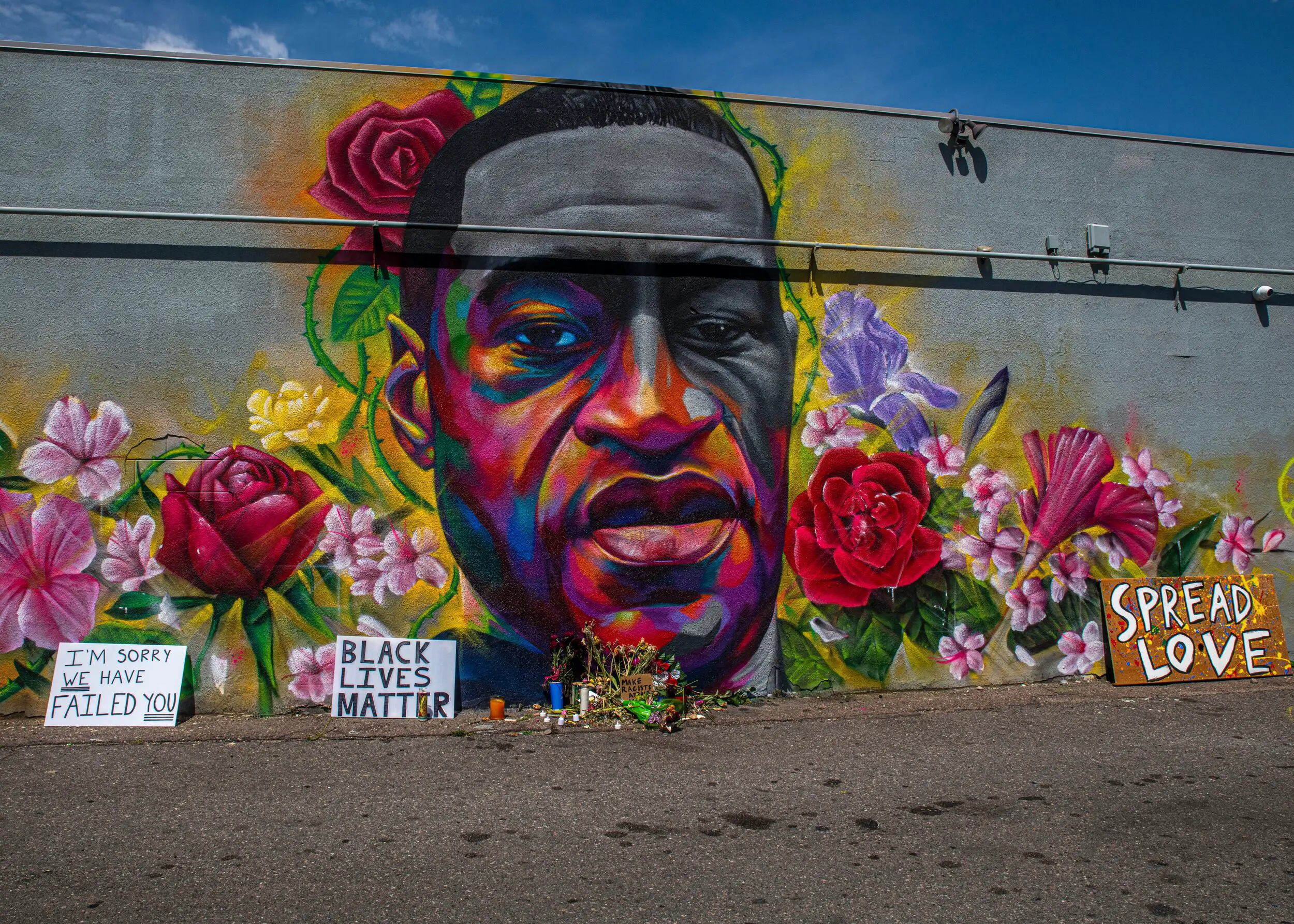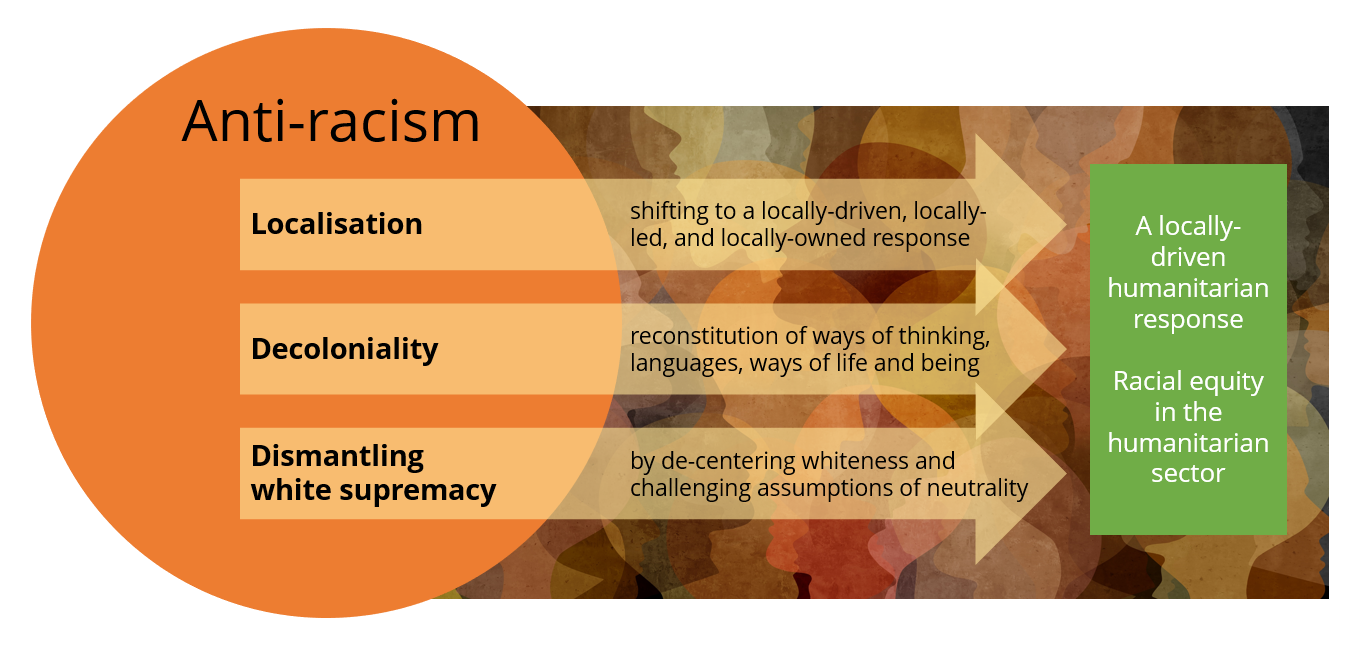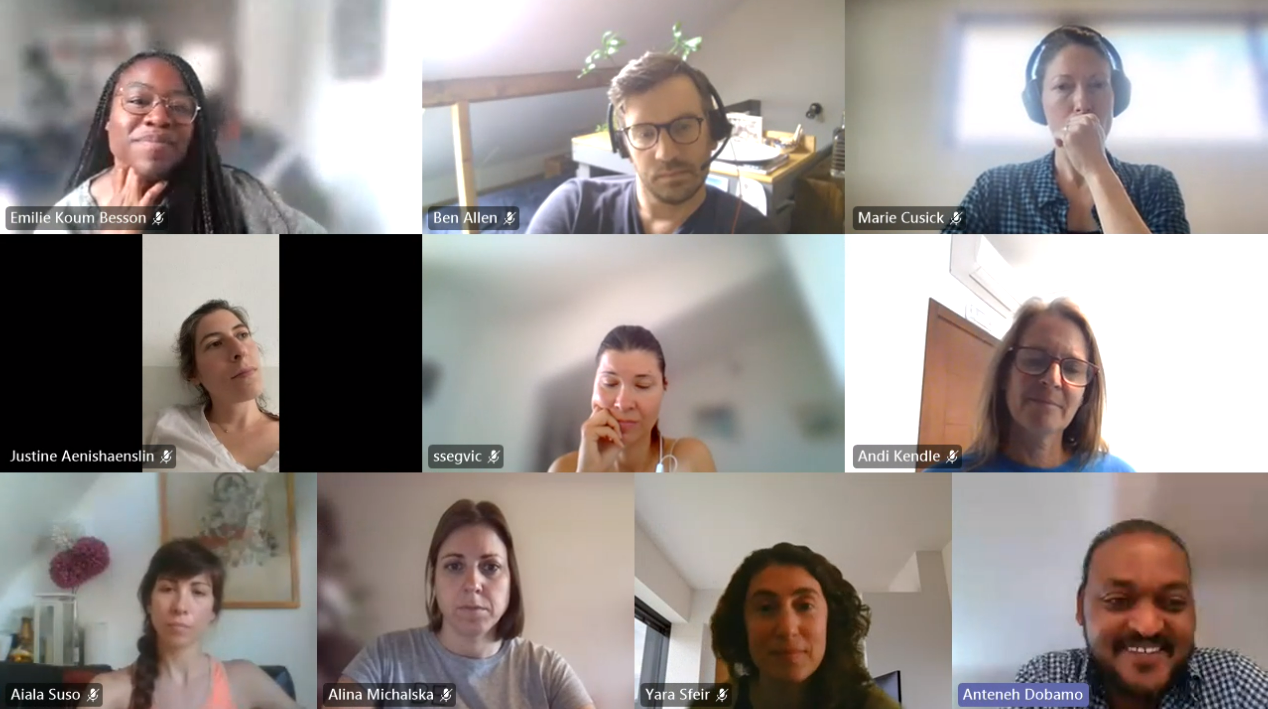Request support on coordination, information management, integration for nutrition outcomes or technical nutrition in emergencies assistance.
التماس الدعم لتنسيق التغذية وإدارة المعلومات والتغذية في حالات الطوارئ
Demander un appui pour la coordination de la nutrition, la gestion de l'information et la nutrition dans les situations d'urgence
Buscar apoyo para la coordinación de la nutrición, la gestión de la información y la nutrición en situaciones de emergencia
Solicite apoio para coordenação em nutrição, gestão de informação e nutrição em emergências
Our journey began as an agenda item on a team call of what was then a group of just seven technical nutrition actors that made up the Technical Rapid Response Team [1]. This was in June 2020, a month after the murder of George Floyd in the United States.
Momentum may have started in the United States; however, it soon sparked a movement around the world demanding we take pause to consider our own individual racism as well as its roots within our institutions.
The conversation was launched by a white colleague who asked us to reflect on what racism looked like for the nutrition sector and our place in it. This momentum may have started in the US, but what did that mean for us? Wasn’t the entire humanitarian system founded on white supremacy and colonialism? What could we achieve as a small technical team? Whatever it would be, we knew we just needed to get started.
Comfortable with being uncomfortable
Starting with the question, “What can we do?”, we held a series of open and uncomfortable conversations, our mantra being: “willing to be comfortable with being uncomfortable”. During these sessions, we voiced our understanding of racism in our work, reflected on our spheres of influence, and took a good look at our leadership and what it reflected back to us.
Was it appropriate that as we followed the levels of leadership higher, the faces became whiter? Was it right to host a webinar about a country in the Global South [2] but have all or nearly all the speakers be from the Global North? These initial questions helped chart the next steps for our anti-racism journey.

One of those steps was to establish an Anti-racism Workstream in August 2020. It was decided that the workstream would centre around the creation of a series of timely, actionable, and measurable anti-racism Commitments for the Technical Rapid Response Team.
These commitments were inspired by a commitments working document compiled by two humanitarian actors that were mentioned during the When the West Falls into Crisis: Rethinking Humanitarianism in the Midst of #BlackLivesMatter and COVID-19 webinar hosted by The New Humanitarian.
Eventually, due to identified synergies, the Anti-racism Workstream merged with a Localisation Workstream to form today's Anti-racism & Localisation Working Group under the Global Nutrition Cluster.
Understanding anti-racism and localisation
During the process of joining the two workstreams, we dedicated time to reflect on the relationship between localisation and anti-racism. What were the synergies? Where did one stop and the other begin? We started by developing definitions to explain how we understood the two concepts for our work:
“Anti-racism is a proactive course of action in the recognition of racism (systemic, institutional, and individual racism) and the dismantling of 'white supremacy' to progress towards racial equity.”
(Inspired by the work of Ibram X. Kendi, Future Ancestors Services, and NAC International Perspectives: Women and Global Solidarity)
“Localisation is based on the recognition of an imbalance of power between international actors and the communities that they serve. Localisation is a restorative process involving recognition, respect, appreciation, and investment in local and national humanitarian capacities, leadership, and local and national resources. The aim is to replace this imbalance with locally driven, locally led, and locally owned response to better and more sustainably meet the needs of affected populations.”
(Inspired by The Grand Bargain, Arbie Baguios and Oxfam)
Then, after many discussions on the relationship and linkages between the two concepts, we felt it was important to embed localisation within anti-racism alongside other important efforts such as decoloniality and dismantling white supremacy – because localisation alone has been critiqued as insufficient to address the unequal power dynamics in the humanitarian and development sectors. Conversely, we felt that anti-racism that does not include the kind of localisation that shifts power to local and national actors would be insufficient for the needs of our sector.
Below is a simple conceptual framework we developed to help us visualize this relationship:
Anti-racism and Localisation Conceptual Framework

Next Steps
With the establishment of the Anti-racism and Localisation Workstream, we set our sights on providing a foundational anti-racism training for the wider GNC Technical Alliance while also improving how we provide support to local and national organisations.
The objective of the anti-racism training was for our team to share a common understanding of and language around anti-racism that would support our ongoing journey. However, we acknowledged that as a workstream – with predominantly white members and leadership – we lacked the capacity and lived experience to provide an anti-racism training internally.
Therefore, an anti-racism consultancy and training was provided in June-July 2022 by Émilie Koum Besson – an independent consultant whose positionality [3] with ties to Blackness, Europe, Africa, and the humanitarian sector enriched the process.
Émilie began by facilitating conversations with our colleagues to assess their foundational understandings and experience with racism and anti-racism. From these conversations, she developed a tailored curriculum for three facilitated training sessions.
The sessions were powerful. They challenged us to confront the origins of humanitarianism, explore how racial categories and power dynamics still affect us today, and encouraged us to be open to discussing racism and anti-racism in our work. Whilst difficult at times, these sessions were fruitful in helping us analyse ourselves and understand how white fragility affects our conversations.

One of the outcomes of this training was the establishment of white and non-white dialogue spaces, as well as one joint (white and non-white) space for our colleagues to continue discussing the important topics touched upon during the training.
Establishing a white-only dialogue space was deliberate because white fragility is best discussed and addressed in all-white spaces and the burden should not be on racialized colleagues to dismantle white supremacy. Meanwhile, establishing a non-white dialogue space can allow for open discussion in a nourishing space.
While the anti-racism consultancy was ongoing, we also launched a consultancy to examine the ways we could improve our work with and support to local and national actors. Led by the Partnership Brokers Association and Nutrition Works, the process began with a review of the Alliance’s processes and interviewing nutrition actors to learn how we can engage better with local and National organisations in mutual partnership.
The consultancy team then synthesized how we had performed as a team in terms of localisation and helped us develop strategic pathways for localisation moving forward. In parallel, we were and continue to work with nutrition cluster teams in three countries – Mali, Somalia, and Sudan – to explore new approaches to providing more comprehensive and effective support to local and national actors.
Lessons learned
- Engaging with anti-racism requires humility and a willingness to learn and unlearn
- We must be willing to be comfortable with being uncomfortable
- White fragility is best discussed and addressed in all-white spaces
- The burden of dismantling systems of racism should not be on Black, Indigenous, or People of Color
- This journey does not have a destination. We are all socialized into a racial system and need to continually confront and unlearn our racist conditioning
- Localisation alone is insufficient to address the power imbalances in our work
[1] a consortium of organisations that operated from August 2015 to December 2020
[2] We acknowledge that the term ‘Global South’ is an imperfect term that is top-down in nature and will likely be replaced in the future
[3] Positionality refers to the personal values, views, and location in time and space that influence how one engages with and understands the world and is influenced by power and power dynamics. This definition is adapted from The Encyclopedia of Geography and included in a set of resources from the Anti-Racist Teaching & Learning Collective. See https://antiracistteaching.org/
Authors
Martha Nakakande (International Medical Corps, Anti-racism & Localisation Working Group co-chair), Alexandra Humphreys (Action Against Hunger CA, Anti-racism & Localisation Working Group co-chair), Ben Allen (UNICEF), Philimon Majwa (UNICEF), Aurélie Salvaire (UNICEF)
Acknowledgements
Colleen Emary (World Vision), Andi Kendle (Action Against Hunger CA) and Briony Stevens (GNC).
